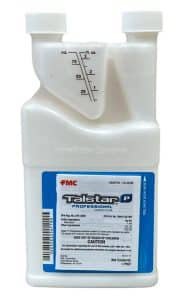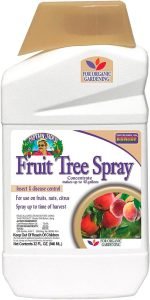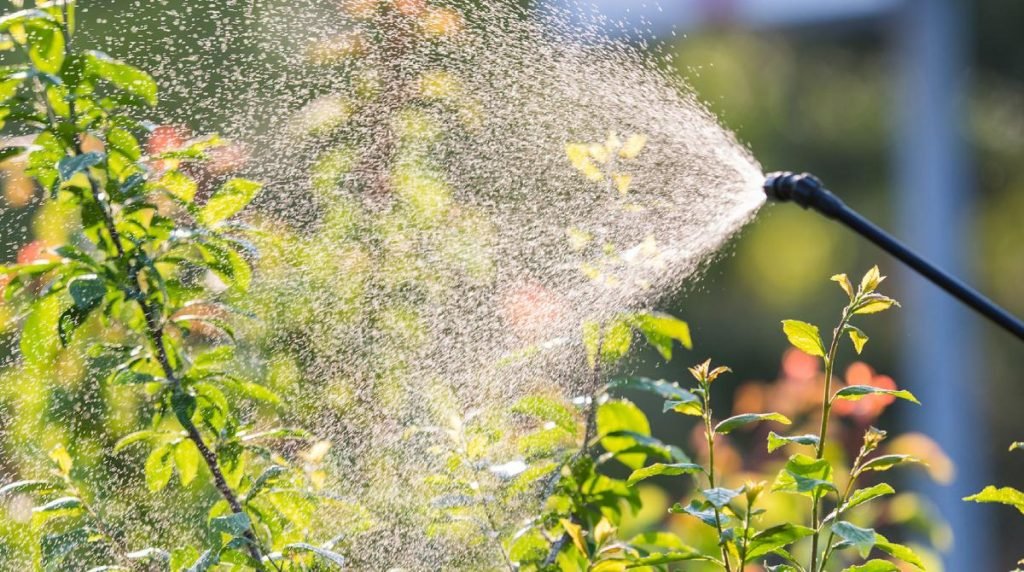Although it can be tempting to see trees as some of the toughest plants in the garden, they can be just as vulnerable to pests as smaller plants and flowers. In fact, in some eastern parts of the United States, it’s estimated that around a quarter of all tree loss in forests is due to various insects and diseases.
Fortunately, there are a variety of insecticide-based products on the market designed to keep hungry critters and munching bugs at bay. These products come in various shapes and sizes, and can range from harsh chemicals engineered to wipe out numerous species at once, to more eco-friendly, organic compounds developed to provide gentler, preventative remedies to pest problems.
It’s worth thinking carefully about the type of product you may want to use, particularly if you wish to preserve natural ecosystems both on and off your land. Gardeners and arborists with children and pets may also want to pay close attention to the chemicals they are considering spraying on their trees, as well as the time needed for any such application to be left before it is no longer considered harmful to humans.
What to consider before spraying your trees
Before we dive in and look at some of the most popular and reliable spray products for tree pest control out there, it’s worth pausing to think about a few things.
Firstly, you’ll want to consider whether spraying is the only solution to your problem, especially given the potential harm this can cause to beneficial insect populations such as bees and other pollinators. Can your pest problem be managed in a more gentle manner? Does it need harsh chemical treatment or is it purely a cosmetic issue that the introduction of predatory bug species could control?
If you do decide to go ahead and spray, it’s also worth thinking about the specific insect species you are targeting. Different insect species will have different lifespans and annual windows within which spraying can be most effective.
The pests that could potentially prey on your trees will also vary depending on the climate and region. A good idea is to check local university information sheets, as agricultural research centers will often compile region-specific guidance as to the types of pests most commonly associated with certain areas throughout different seasons, and may even offer advice as to how best to deal with particular species.
Remember, the more blanket an approach you take, the more chance you have of damaging delicate ecosystems and harming insects that can help rather than hinder your garden. Trees are part of complex living networks and rarely thrive in isolation, so promoting a healthy, varied ecosystem is often a more sustainable way of promoting healthy tree growth than trying to aggressively kill every bug that lands on your crops.
That being said, there are undoubtedly moments in every gardener’s life when a pest problem does threaten to seriously harm or damage a desired plant or crop, and trees are by no means immune to these risks. With that in mind, let’s take a look at some of the most popular spray insecticides on the market today, known to be effective at dealing with pest-problems relating to trees.
FMC Talstar Pro Multi-use Insecticide

We start with a professional-grade, multi-use product that’s applied in a wide range of scenarios. Often a go-to for pest control experts, FMC Talstar is a broad-spectrum, chemical insecticide designed to knock out large populations of insects and potential pests, including ants, termites, and ticks. It’s often applied to indoor as well as outdoor spaces due to its flexibility and established effectiveness.
Its core ingredient, bifenthrin, is a synthetic version of a naturally occurring compound, and paralyzes and kills insects it comes into contact with. When sprayed over an area as per packet directions, it can provide effective control and prevention for up to 90 days, a longer duration than many commercial spray competitors.
It’s also non-irritating to humans, is odorous, leaves no physical traces when it dries, and should not damage plants if used correctly. It is, however, a toxic substance that should not be ingested, so keeping it away from pets and children, as well as food that’s about to be eaten, is crucial.
Bonide Captain Jack’s DeadBug Brew

For those looking for a more organic, though still effective, treatment, Bonide’s DeadBug Brew is a product geared more towards home gardeners and hobbyists than professional pest controllers.
The main ingredient in this insecticide is spinosad, a naturally occurring substance that is harmful to insects but not plants or mammals. It can, like the majority of insect-harming pesticides, kill friendly pollinators as well as pests, so avoid applying this to your trees when bees are in session.
This is a great method for killing various types of boring beetle, caterpillars, moths, leaf miners, and other hungry garden bugs intent on munching through all manner of plant life. The smaller bottle size, however, may make it a better bet for smaller trees which are easier to reach by hand.
BioAdvanced Fruit, Citrus & Vegetable Insect Control
This durable and wide-ranging pest control product has been specially designed to help protect all manner of fruit and nut trees from more than twenty five common garden pests. It’s particularly effective at targeting and killing Asian Citrus Psyllids, a small and potentially destructive insect that target various citrus trees and can carry disease.
This insect control is also designed to be rainproof, meaning that it should be able to offer residual protection for up to 2 months following proper application. It can also be used to protect a variety of vegetable crops as well as berries and other fruiting plants.
Garden Safe Neem Oil Extract Concentrate
For those who want a purely organic and comparatively eco-friendly method of combatting pests, neem oil is often a first choice. This natural extract is a favorite amongst organic, eco-conscious gardeners and can be used on a wide variety of shrubs, ornamental plants, and trees.
Regular application is often required to get its full preventative benefits, but it is far less harmful to pets, livestock, mammals, and humans than other synthetic pesticides. Neem oil also acts as a fungicide which can help to prevent and control powdery mildew, black spot, and other common fungal diseases which can harm trees.
Garden Safe offer this simple version which can be diluted and sprayed over trees and other areas, though if you shop around online or in your local garden center you’ll come across numerous other products containing similar ingredients.
Compare-N-Save Systemic Tree & Shrub Insect Drench
Finally, if you think spraying requires too many applications and are worried about the residual effects of applying pesticide to the surface of your tree, drench-based products are an increasingly popular alternative.
These solutions are designed to be diluted and then poured around the trunk of the tree, allowing the product to soak into the soil and be taken in by the root system. The tree then gradually distributes the insecticide through its leaves, allowing for the effective targeting of leaf-eating pests.
This product by Compare-N-Save is formulated to offer up to 12 months protection for each application, and targets a wide range of common tree pests, including emerald ash borers, aphids, and Japanese beetles. It can be used on a wide range of fruit trees, though should not be applied to linden, basswood, or other tilia species.

